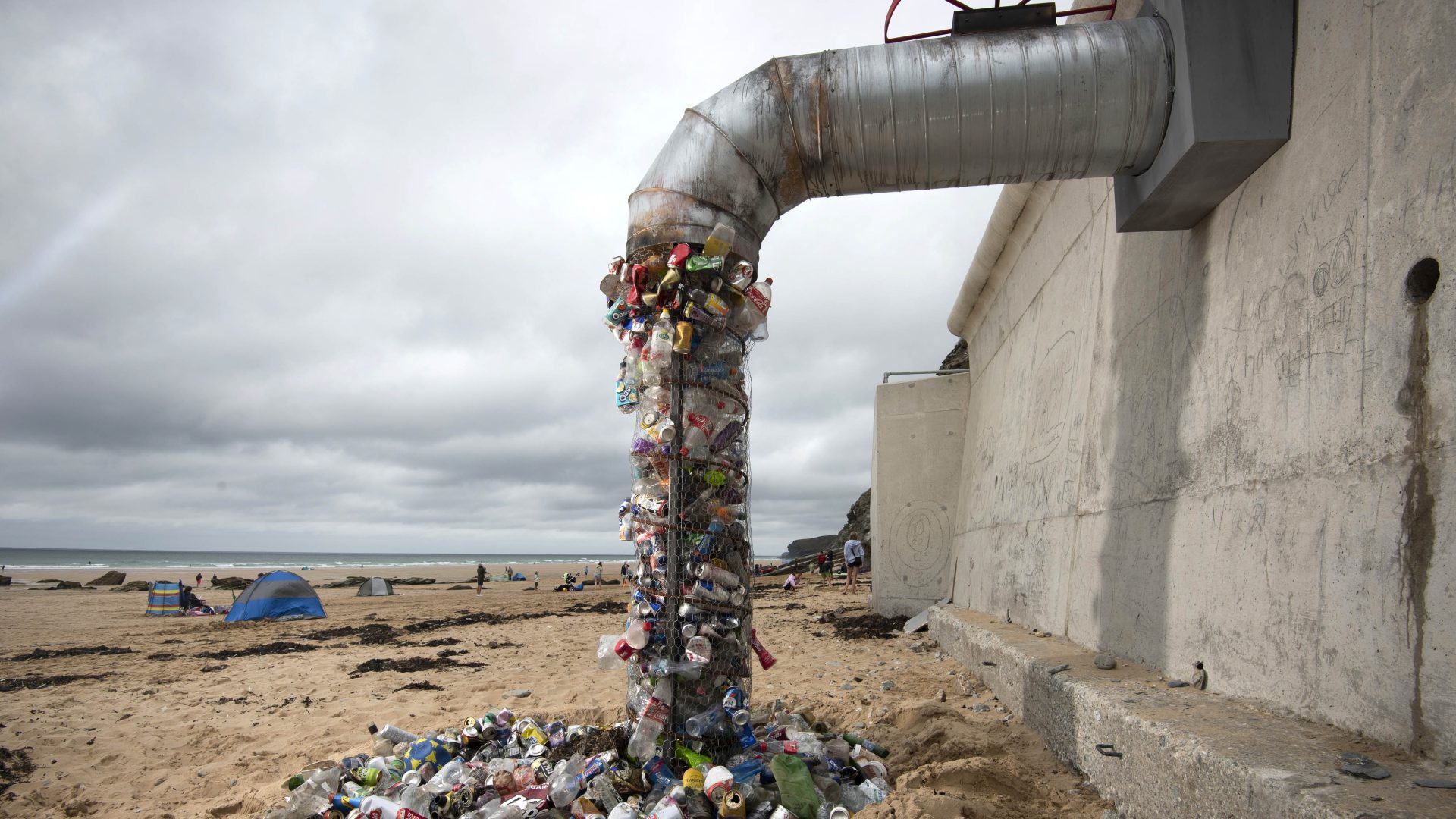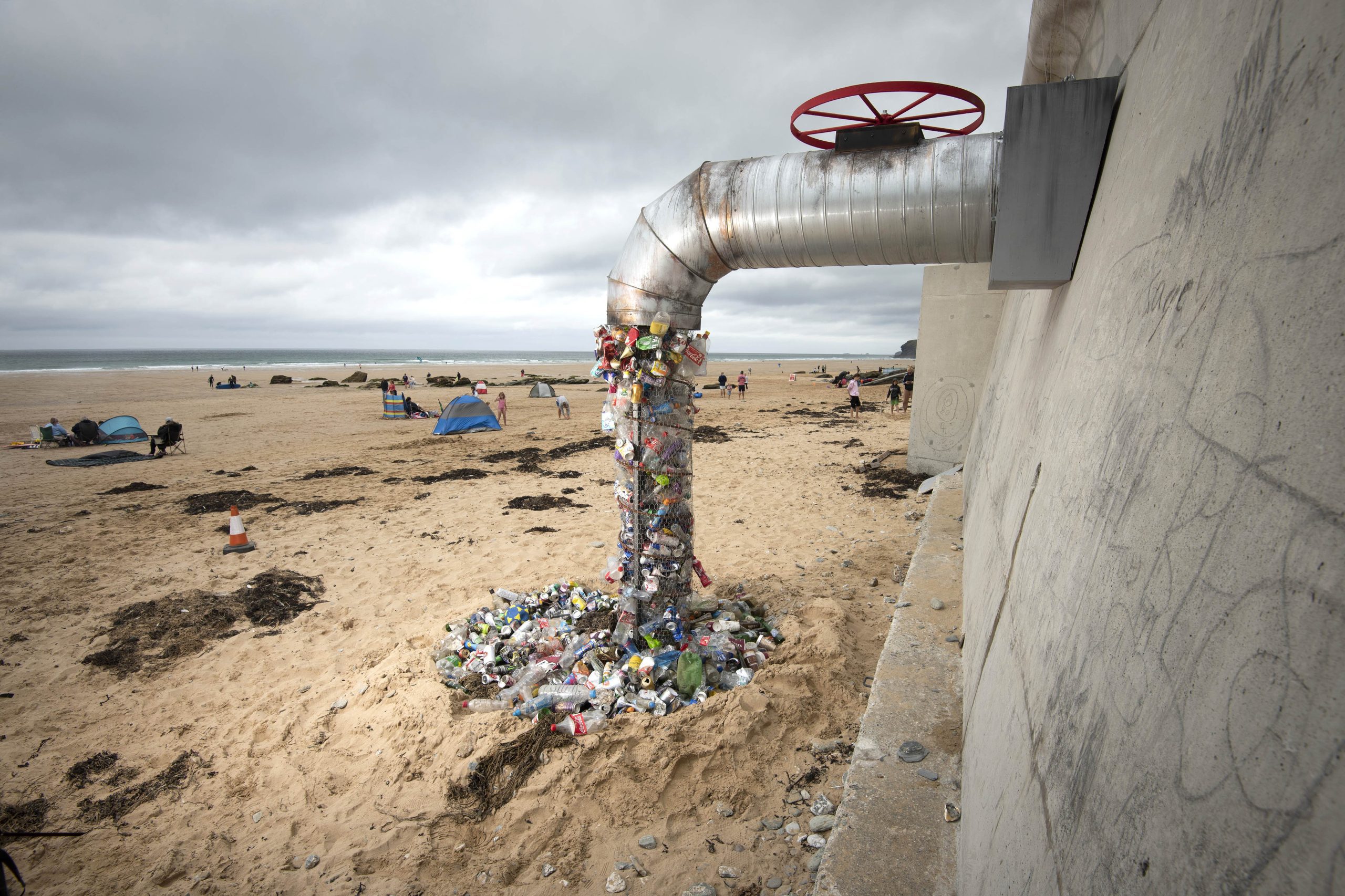
Global resolution to end plastic pollution agreed

Yes, it’s really happened. Today, a historic resolution has been agreed by 175 countries to end plastic pollution. This is the most important international environment pact since the Paris climate agreement in 2015. It’s the Paris moment for plastics.
Commenting on the announcement, our chief exec, Hugo, had this to say:
“Today’s historic agreement in Nairobi marks the beginning of the end for the epoch of single-use plastics. The plastic pollution crisis has continued to accelerate in recent years, reaching all corners of the planet, suffocating nature, wildlife and communities alike. International coordination and action on the full life-cycle of plastics, from production to disposal, is the only way to stop the rising tide of plastic pollution.
“We must congratulate the volunteers, communities and activists taking their actions from the beach front to the boardroom, ensuring that global leaders didn’t lose sight of this most urgent global threat and reaching consensus to deliver a legally-binding Global Plastics Treaty.”
The agreement follows years of campaigning by organisations and campaigners across the globe, including Surfers Against Sewage. So take a moment and celebrate this huge win for the ocean.
Why do we need a Global Plastics Treaty?
Every year 12 million tonnes of plastic are poured into the sea. It’s been found in the deepest parts the ocean and is strewn across beaches around the world. It chokes marine life, entangles birds, bleaches coral, and poisons fish. Globally, plastic packaging production is expected to double by the late 2030s and quadruple by 2050. Plastic production is increasing and our waste management systems can’t cope.
The production of plastics is also a huge contributor to climate change. It is estimated that the production and incineration of plastic has pumped more than 850 million tonnes of greenhouse gases into the atmosphere. By 2050, those emissions could rise to 2.8 billion tonnes (and the production of one tonne of plastic generates up to 2.5 tonnes of carbon dioxide).
And plastic travels. It does not adhere to international borders. It traverses the globe via ocean currents from the shores of Cornwall to the beaches of the Caribbean. It leaks from ancient landfills in Europe to be found on the shimmering sands of Africa.
At present, action to address plastic pollution is fragmented and not co-ordinated. So if we are truly going to end plastic pollution, it needs international cooperation, drive and will.
That’s why the Global Plastics Treaty is so critical. It’s the first step towards a coordinated approach to tackle the plague of plastic pollution.
What is the Global Plastics Resolution?
Today’s resolution sets out the broad terms for a global treaty on plastic pollution and has been agreed at the United Nations Environment Assembly, held in Nairobi, Kenya.
Critically, agreement has been reached for the treaty to address the full lifecycle of plastics – this means the production and design of plastics are covered and not just waste management. This offers the potential to cap the production of plastic or certain types of plastics. And the agreement also covers plastic pollution in all environments, not just limited to marine plastics.
The treaty will be legally binding rather than voluntary which is vital to ensuring action is taken and that polluters are held to account.
In addition, the resolution is the first time the informal waste sector has been recognised in international law. This is critical to ensure they have a seat at the table of treaty negotiations and that their contribution to sustainability in the waste management sector is fully recognised, and their human rights upheld.
What’s next?
Now the resolution has been agreed, an intergovernmental negotiating committee (INC) will be formed which will negotiate a final treaty to be signed. This is likely to start in the autumn this year and will start to thrash out the finer details with a treaty agreed and signed in the next two years.
Will SAS still be campaigning to end plastic pollution?
Yes! The Global Plastics Resolution is a landmark moment but there is still a long way to go before we have a full treaty in place.
We need to make sure that governments and polluters around the world are still held to account and that they ACT NOW on the promises that have been made today and in the final treaty.
We’ll be on the beaches with Ocean Activists, gathering the evidence to call out polluters until they change their ways. From the beachfront to the frontbench, we will continue to demand a plastic pollution free future. We’ll be calling for more bans on single-use plastics, for the introduction of an ‘all in’ deposit return scheme, and for extended responsibilities.
We won’t stop until our beaches, rivers, streets, and the ocean, are plastic free.
Get involved in our campaign to tackle plastic pollution. Run a beach clean, join a plastic free community, or become an SAS member.
